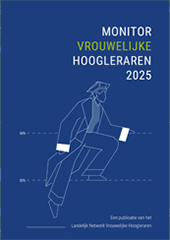15 Sep 2016
Tedious, Thorny and Quintessential: Gender mainstreaming in academia
Achieving gender equality has been a continuing concern in both society and academia since the 1970s. Yet, Dutch universities have been slow to institutionalise gender equality, and gender imbalances continue to characterise the academic landscape. Interestingly, this occurs in an environment where the dominant idea is that Dutch society has finalised its emancipation process. While the undesirable effects of gender inequalities on research and teaching are now recognized and increasingly addressed, the dynamics of gender equality interventions are tedious and thorny. Interventions and policies aimed at changing academia and science towards greater gender balance meet with organizational gender inertia and resistances, implicit and explicit, against changing the asymmetric gender order.Why is this so? Gender practices like the construction of academic quality, gatekeeping and “leaky pipelines” are some of the mechanisms that maintain gender inequalities. Gender patterns are highly persistent and resistant to change and, as a result, gender segregations continue to characterize the academic and scientific labour force.
How to move forward with this tedious, thorny yet quintessential question?
The key aim of the debate hosted by ARC-GS to open the academic year, is to examine the mechanisms that (re)produce inequalities from different institutional and disciplinary perspectives, and to identify strategies and initiatives to mainstream gender in academia.
With: Prof. Judi Mesman (Professor of Diversity in Parenting and Development, Leiden University), Prof. Fiona Mackay (Professor of Politics, The University of Edinburgh), and Dr. Maxime Forest (Associate Researcher and Senior Lecturer, Sciences Po University Paris)
Date: September 15, 2016 - 14h00-18h00
Location: TBA


